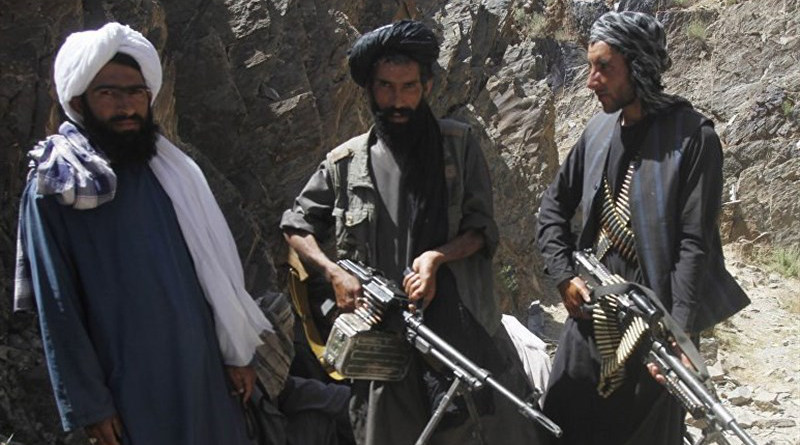US Pullout From Afghanistan And Implications For Pakistan – OpEd
After a nearly two-decade-long military presence in Afghanistan, the U.S. President Joe Biden announced unconditional troop withdrawal from Afghanistan by September 11. The U.S formally began withdrawing its troops from Afghanistan on May 2, bringing its longest ever war closer to an end but also heralding an unclear future for a country that is again in the tightening grip of emboldened Taliban. Likewise, the withdrawal, hasty to some, would have implications for the regional countries, Pakistan in particular.
Spillover effects
Pakistan shares a treacherous, 1640-miles long border with Afghanistan. The rusty and mountainous range has traditionally served as a safe sanctuary for several militant groups including the Afghan Taliban. After the U.S. invasion in Afghanistan in 2001, thousands of Taliban fled and take refuge in tribal belt of Pakistan from where they carried out occasional cross border infiltration. With the U.S. withdrawal, the Taliban would have an opening to cross both sides of the border and resume their contacts.
Although Pakistan has almost fenced the whole Pak-Afghan border to stop armed groups, such as the Haqqani Network, Al-Qaeda and the Tehreek-e-Taliban Pakistan (TTP), yet the likelihoods of their infiltration and Taliban’s in and out loom large given their familiarity with the area and deep rooted kinship and sympathies on either side of the border. Besides, concerns mount further about the ability of Afghan forces to hold the Taliban without the U.S. forces presence when a classified U.S. intelligence agencies assessed that the Taliban would overrun most of Afghanistan within two to three years if U.S. troops leave without a power-sharing deal.
Contiguous to Afghanistan, Pakistan may also suffer from another round of refugee influx, a more robust drug trade and unbridled terrorism in case the security in Afghanistan deteriorates. A more troubling aspect for Pakistan could be that if Taliban take Kabul, it would spur the Islamists terrorist — who currently are almost made toothless — and the resurgent Pakistani Taliban—who have already intensified their anti-state activities.
Other than Pakistani Taliban’s claiming of responsibility of several attacks, such as Serena Hotel in Quetta and attacks on security forces in KPK and Baluchistan, some footages of Jihadist seeking support and funds from the people have surfaced on the occasion of Eid which is referred to as their resurgence. The picture looks horrible if any part of it comes to practice and it would make things really challenging for Pakistan after it nearly got hold of countrywide militancy.
The Indian question
Whereas the Taliban apparent takeover of Kabul could be a matter of great anxiety for the world and Pakistan alike, it offers the latter an advantage, too. If it happens, India will have to reinvigorate its policies to come to terms with the Taliban. Historically, India has been close to Northern Alliance and has been opposing Taliban return to power. With the overthrow of the Taliban after U.S. invasion followed by the Bonn Conference in 2001, New Delhi established cordial and working relationship with successive Afghan governments. Even today it remains one of the major financers and stakeholders inside Afghanistan. But, its opposition to the Taliban, as was signaled through categorical denial of supporting the Taliban regime in May 4 joint EU-India press statement on Afghanistan, may make it least important in the changing scenario. To stay relevant in the region, India will have to reorient its policies and there are signs that New Delhi is mulling over opening talks with the Taliban.
Last year, speaking on the opening session of intra-Afghan negotiations in Doha, Indian External Affairs Minister S Jaishankar stressed and reiterated his country’s support for an “Afghan-led, Afghan-owned, and Afghan-controlled” peace process. This signifies India has realized who the real stakeholders in Afghanistan are and who may have upper hand in days to come. For the Taliban, it will be hard to adjust relationship with a country that has consistently supported its enemies but shifting dynamics could bring both the sides closer for two apparent reasons, i) India won’t let its two decades long multi-pronged investment go away with the Taliban takeover especially when it knows Pakistan will have an edge if Kabul falls to Taliban, and ii) Taliban would seek legitimacy and engaging with India would hand them a support from a powerful regional country, too.
Conclusion
Pakistan’s Afghan policy has come up with surprises and, at times, remained irrational. Despite having played a lead role in eliminating menace of militancy from the region, the world still sees Pakistan with suspicion. The U.S. forces withdrawal hands Pakistan another opportunity to set its tarnished image cleaned through playing a lead role in encouraging regional cooperation to ensure stability in Afghanistan. Pakistan will have to be shrewd and must not stick with the policies of 1990s; policymakers in Islamabad need to craft policies which can work flexibly in the post-U.S. withdrawal scenario.
*The writer has completed PhD in South Asian Studies from the South Asian Center in Punjab University, Lahore. She can be reached at [email protected]

